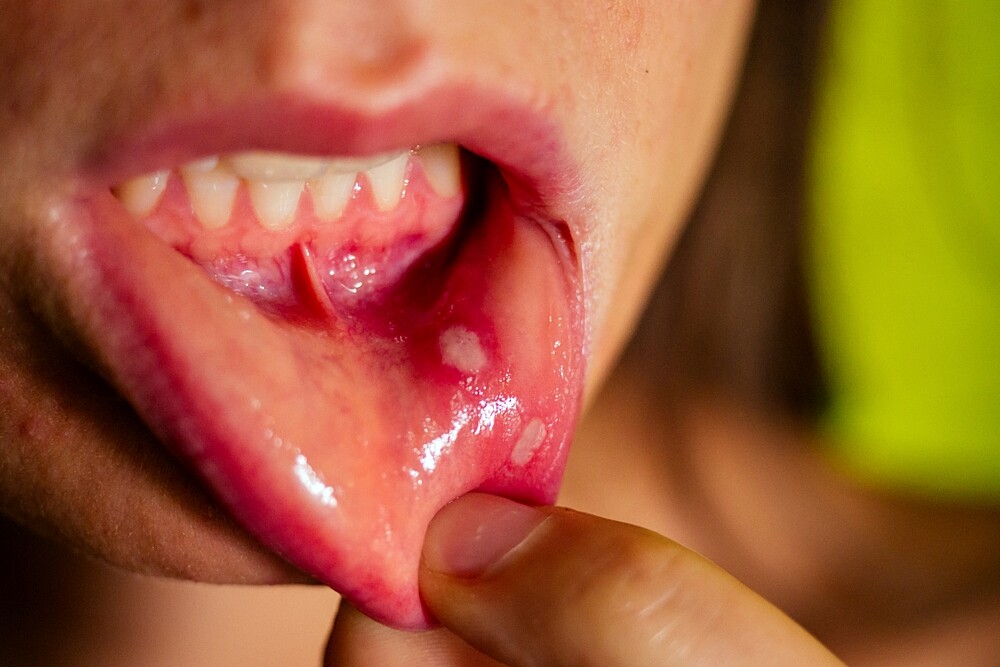Aphthae are small ulcers that mainly affect the oral mucosa. We will tell you how they develop and how you can get rid of them!
What are Aphthous Ulcers?
Aphthae or Aphthous are small ulcers of the mucous membrane, usually in the mouth. Usually they are recognizable as oval elevations (papules) with white or yellowish discoloration and have a diameter of about one centimeter. Aphthous ulcers are harmless, but they can cause pain and interfere with eating.
Approximately one in five people will get an aphthous ulcer once in their life, and in some people the papules occur again and again. In this case one speaks of chronic recurrent aphthae.
There are three different forms of aphthae:
- Minor aphthous ulcers: This form accounts for about 80 percent of all cases. They are the smallest form of aphthae and usually only grow a few millimetres to a maximum of one centimetre in size.
- Major aphthous ulcers: They occur less frequently than minor aphthae and, as the name suggests, are also considerably larger than them: The papules can grow up to three centimeters in size.
- Herpetiform aphthous ulcers: This rare form of aphthae is tiny, the papules are closely packed together. Visually, herpetiform aphthae resemble the vesicles of cold sores, which is what gave them their name.
Where do aphthae occur?
If aphthae occur on the oral mucosa, they are usually found in the following places:
- on the inside of the lips and cheeks
- on the tongue
- on the palate
- gingival
In rare cases aphthae can also occur on the genitals.
What symptoms do aphthae cause?
Aphthae on the oral mucosa cause the following symptoms:
- Burning
- Itch
- General pain when eating, drinking and brushing teeth
What causes can aphthae have?
It has not yet been conclusively clarified which causes there are for aphthae. Experts suspect that they are caused by a reaction of the immune system and that various factors increase the risk. These include:
- Genes
- Mental stress
- Lack of nutrients, vitamins or minerals such as iron deficiency, folic acid deficiency, zinc or vitamin B12 deficiency
- Food incompatibility
- Injuries in the mouth (e.g. due to bite wounds)
- Hormonal fluctuations
Aphthous ulcers can also occur as a symptom of other diseases, e.g:
- Gluten intolerance
- Intestinal diseases such as Crohn’s disease and ulcerative colitis
- Malnutrition
Treatment: What helps against aphthous ulcers?
As unpleasant as they are, aphthous ulcers usually heal on their own within one to two weeks. If they appear as a symptom of another disease, it must be treated. In order to relieve the symptoms such as burning and itching, one can resort to slightly anaesthetic ointments from the pharmacy.
Which foods should I avoid with aphthous ulcers?
There are foods that can increase the pain caused by aphthae. These foods should be avoided:
- Fruit juices
- Citrus fruit
- Spices
- Alcohol
- Rusk
- Bread roll
In addition, care should be taken to ensure thorough oral hygiene. Besides brushing your teeth twice a day, mouthwashes help.


Very good info. Lucky me I discovered your site by accident (stumbleupon). I have saved it for later!
Fennel essential oil applied via cotton swab
Game changer